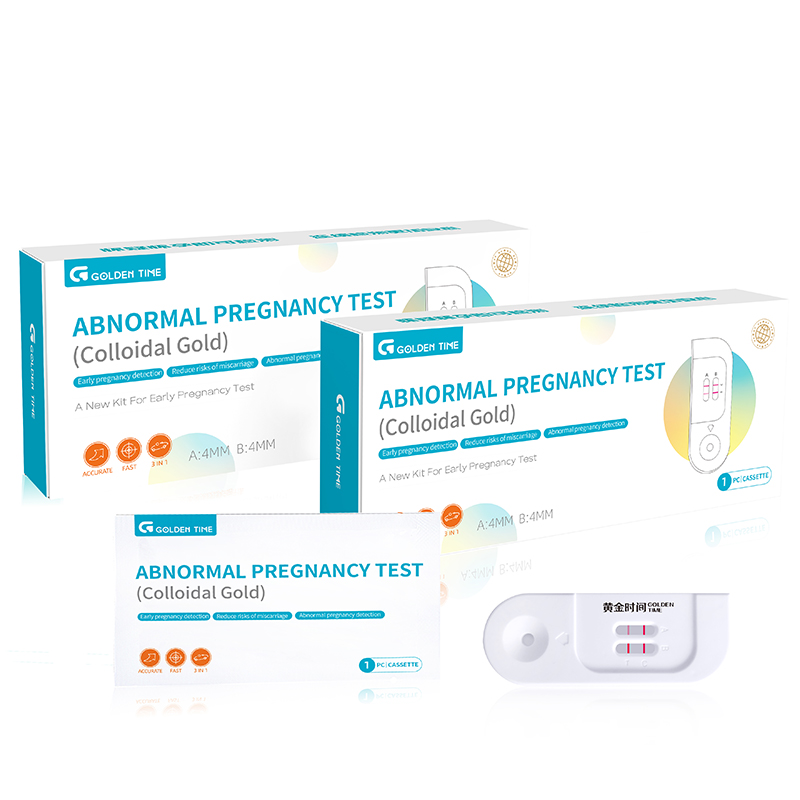8 月 . 15, 2024 09:26 Back to list
Top Manufacturers of H. Pylori Test Kits for Accurate Diagnosis and Home Testing Solutions
Understanding h. pylori Test Kit Manufacturers
Helicobacter pylori, commonly referred to as H. pylori, is a type of bacteria that can inhabit the stomach lining and is recognized as a major contributor to gastric ailments such as peptic ulcers and chronic gastritis. The prevalence of H. pylori infections worldwide mandates diagnostics to effectively identify and treat those affected. This has led to the emergence of a variety of H. pylori test kit manufacturers that cater to clinical needs.
The Importance of H. pylori Testing
Testing for H. pylori is crucial for both diagnosis and treatment. Typically, several methods are available, including non-invasive tests such as urea breath tests, stool antigen tests, and invasive methods like endoscopy with biopsy. Accurate detection leads to timely intervention, which can prevent serious complications including gastric cancer.
Different Types of H. pylori Test Kits
H. pylori test kits come in several forms, each with their advantages and limitations
1. Urea Breath Test Kits These are non-invasive and reliable. In a urea breath test, the patient ingests a substance containing urea labeled with a carbon isotope. If H. pylori is present, the bacteria will break down the urea, producing carbon dioxide that can be detected in the patient's breath. Manufacturers producing these kits focus on accuracy and user-friendliness, ensuring that healthcare providers can perform the test with minimal training.
2. Stool Antigen Test Kits These kits detect specific antigens associated with H. pylori in a stool sample. They are also easy to use and provide fast results which can be especially beneficial for outpatient settings. Manufacturers are constantly improving these tests for higher sensitivity and specificity, reducing the chances of false negatives and positives.
3. Serology Tests While less common in recent years, serological tests involve drawing blood to detect antibodies against H. pylori. Although they are generally simpler and cost-effective, they have limitations in determining current infections versus past exposure, leading many manufacturers to focus on more precise methods.
Leading Manufacturers in the Field
h pylori test kit manufacturers

The market for H. pylori testing is competitive, with a range of manufacturers offering innovative solutions. Some notable companies include
- Abbott Laboratories Known for its advanced diagnostic technologies, Abbott offers a variety of tests including the urea breath test, which is recognized for its sensitivity.
- Thermo Fisher Scientific This company develops a range of stool antigen tests that are celebrated for their accuracy and reliability in various clinical settings.
- Siemens Healthineers Known for their extensive portfolio in laboratory diagnostics, Siemens has also ventured into H. pylori testing, providing healthcare professionals with robust testing options.
- Eiken Chemical Co., Ltd. This Japanese firm specializes in innovative testing solutions, including rapid test kits for H. pylori that cater to both clinical and point-of-care settings.
Challenges Faced by Manufacturers
Despite advancements, H. pylori test kit manufacturers face challenges such as the need for continuous innovation to keep up with ever-evolving strains of the bacteria. Furthermore, educating healthcare providers on the efficacy and proper use of these tests is vital to maintain accuracy in diagnosis. Regulatory compliance also poses a challenge, as manufacturers need to meet stringent guidelines set by health authorities to ensure the safety and reliability of their products.
Conclusion
As the understanding of H. pylori's role in gastrointestinal diseases evolves, the importance of reliable testing kits cannot be overstated. Manufacturers in this space are pivotal in enhancing patient outcomes by providing accurate and timely detection of infections. The ongoing collaboration between healthcare providers and test kit manufacturers is essential for improving diagnostic protocols and ultimately, enhancing patient care related to H. pylori infections. As technology progresses, we can expect further innovations that will simplify testing and improve diagnostic accuracy, making it easier to combat H. pylori and its associated health risks.
-
Early Pregnancy Test Kits Accurate & Fast Results Bulk Order Now
NewsMay.30,2025
-
Buy OPK Tests for Pregnancy Detection Bulk Supplier Discounts
NewsMay.30,2025
-
Buy OPK Tests for Pregnancy Detection Bulk Supplier Discounts
NewsMay.30,2025
-
Best At Home H Pylori Test Kits Accurate, Fast & FDA-Certified
NewsMay.29,2025
-
Accurate Syphilis Test Kits Trusted Suppliers & Manufacturers
NewsMay.29,2025
-
Wholesale Stool Occult Blood Test Kits Bulk Supplier Pricing
NewsMay.29,2025

